Coca Cola & UNICEF: A Business Environment Analysis Report
VerifiedAdded on 2023/04/17
|11
|437
|389
Report
AI Summary
This report provides a comparative analysis of Coca Cola, a public company in the FMCG sector, and UNICEF, a non-profit organization focused on children's welfare. It examines their types, benefits, purposes, size and scope of operations, and organizational structures. Coca Cola, operating in over 200 countries, utilizes a hierarchical structure, while UNICEF employs a high-level structure to manage its global initiatives. The report references academic sources to support its analysis of these distinct organizational models. Desklib offers this document and many other solved assignments for students.
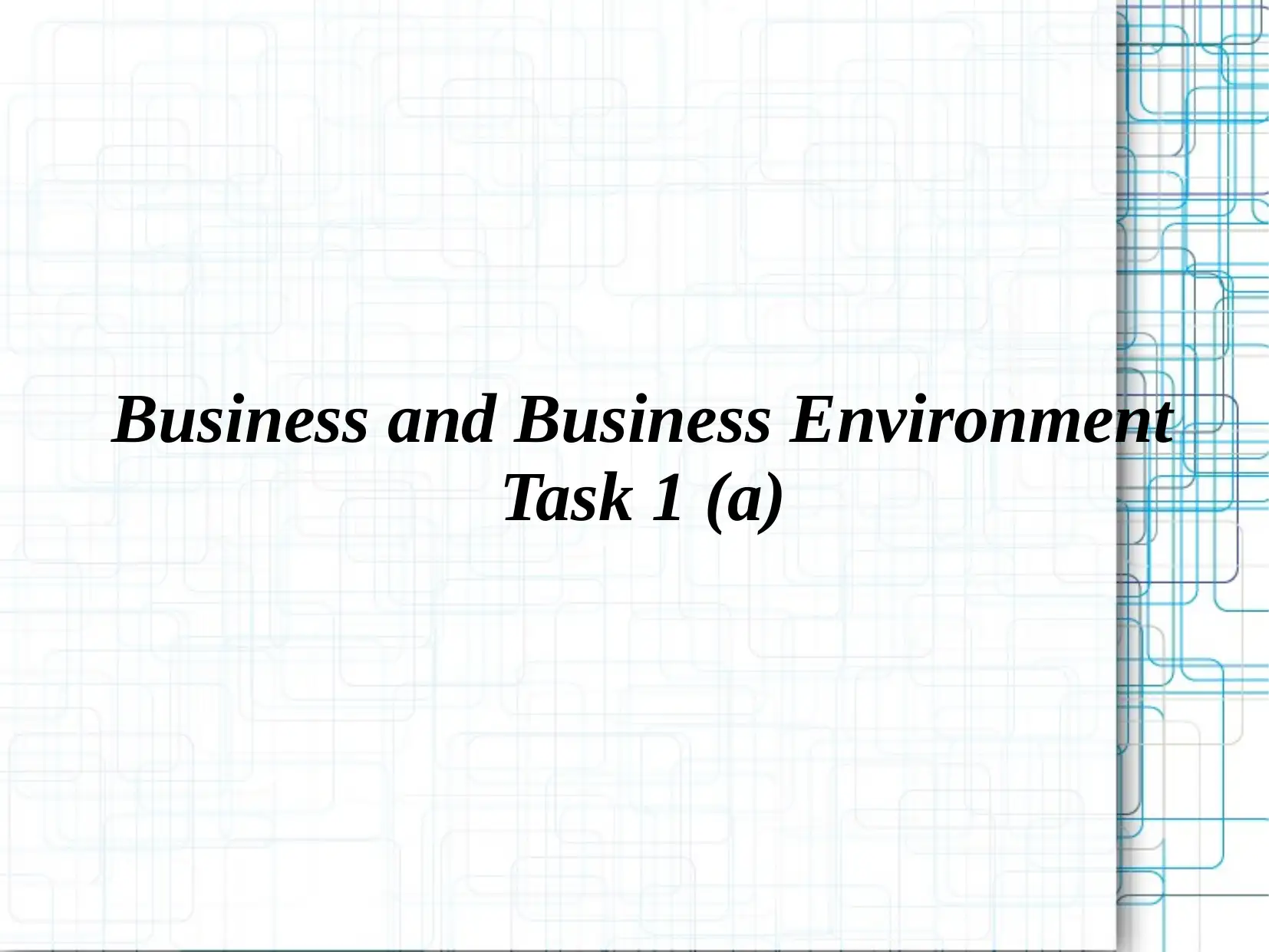
Business and Business Environment
Task 1 (a)
Task 1 (a)
Paraphrase This Document
Need a fresh take? Get an instant paraphrase of this document with our AI Paraphraser
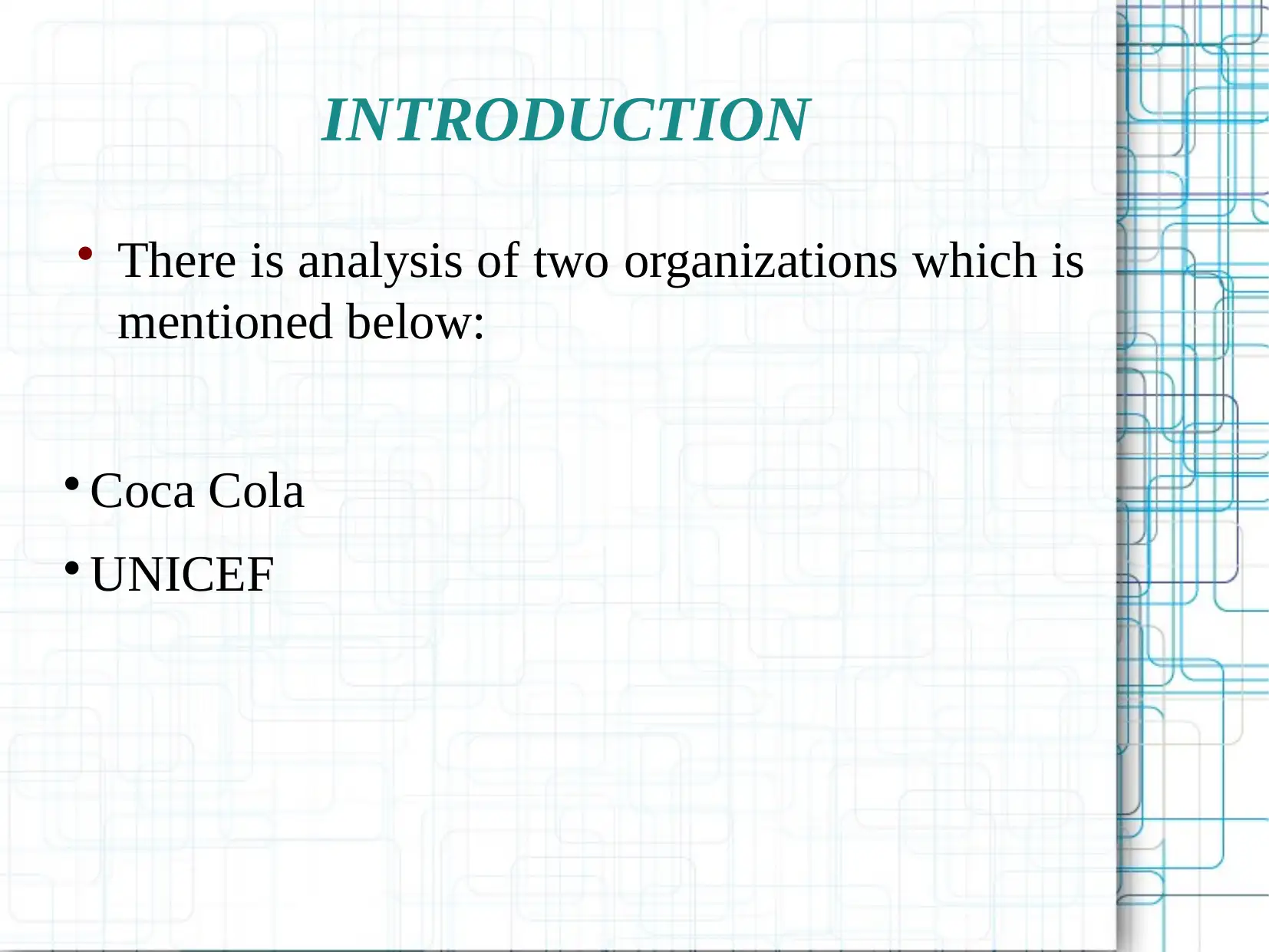
INTRODUCTION
There is analysis of two organizations which is
mentioned below:
Coca Cola
UNICEF
There is analysis of two organizations which is
mentioned below:
Coca Cola
UNICEF
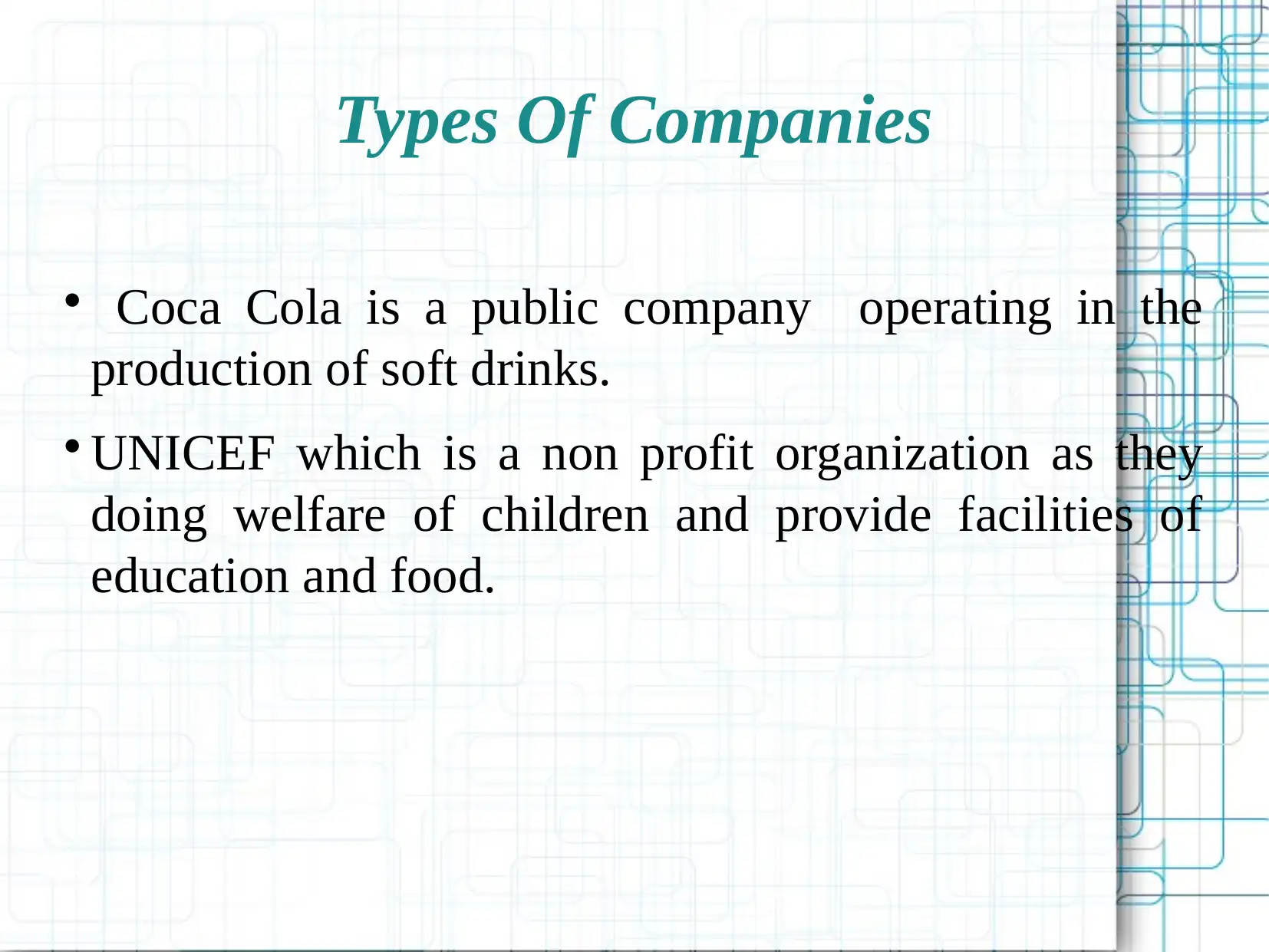
Types Of Companies
Coca Cola is a public company operating in the
production of soft drinks.
UNICEF which is a non profit organization as they
doing welfare of children and provide facilities of
education and food.
Coca Cola is a public company operating in the
production of soft drinks.
UNICEF which is a non profit organization as they
doing welfare of children and provide facilities of
education and food.
⊘ This is a preview!⊘
Do you want full access?
Subscribe today to unlock all pages.

Trusted by 1+ million students worldwide
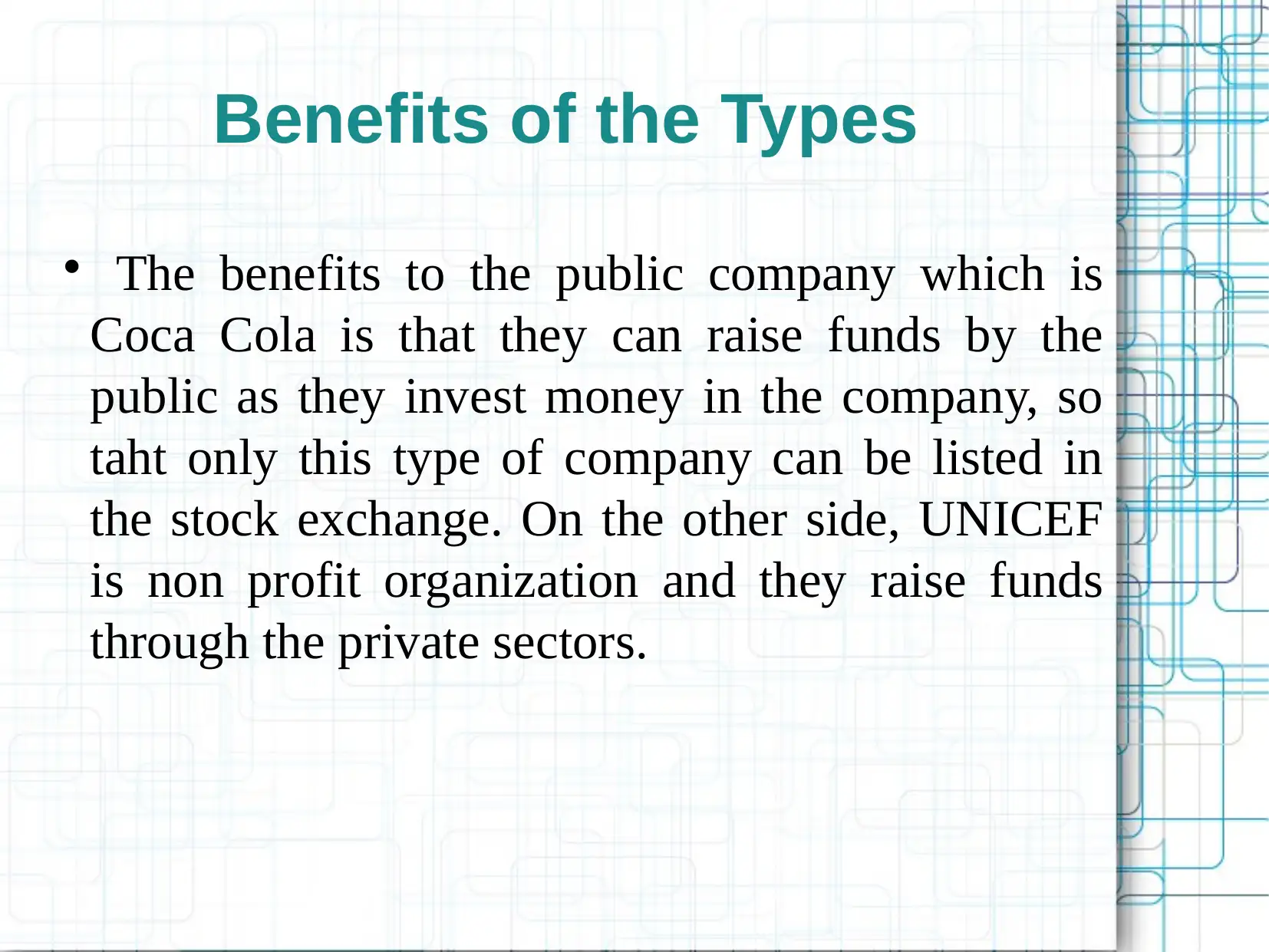
Benefits of the Types
The benefits to the public company which is
Coca Cola is that they can raise funds by the
public as they invest money in the company, so
taht only this type of company can be listed in
the stock exchange. On the other side, UNICEF
is non profit organization and they raise funds
through the private sectors.
The benefits to the public company which is
Coca Cola is that they can raise funds by the
public as they invest money in the company, so
taht only this type of company can be listed in
the stock exchange. On the other side, UNICEF
is non profit organization and they raise funds
through the private sectors.
Paraphrase This Document
Need a fresh take? Get an instant paraphrase of this document with our AI Paraphraser
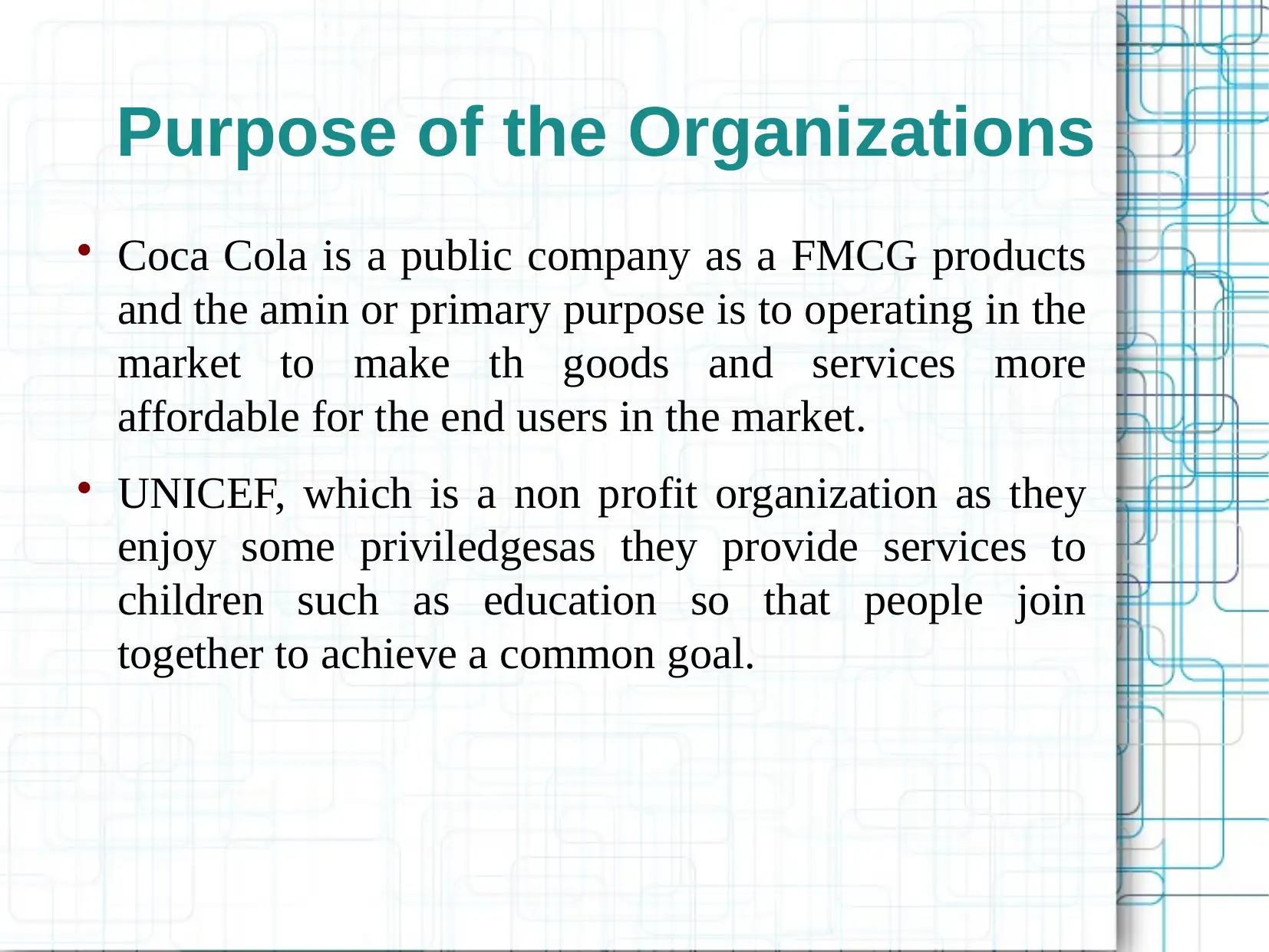
Purpose of the Organizations
Coca Cola is a public company as a FMCG products
and the amin or primary purpose is to operating in the
market to make th goods and services more
affordable for the end users in the market.
UNICEF, which is a non profit organization as they
enjoy some priviledgesas they provide services to
children such as education so that people join
together to achieve a common goal.
Coca Cola is a public company as a FMCG products
and the amin or primary purpose is to operating in the
market to make th goods and services more
affordable for the end users in the market.
UNICEF, which is a non profit organization as they
enjoy some priviledgesas they provide services to
children such as education so that people join
together to achieve a common goal.
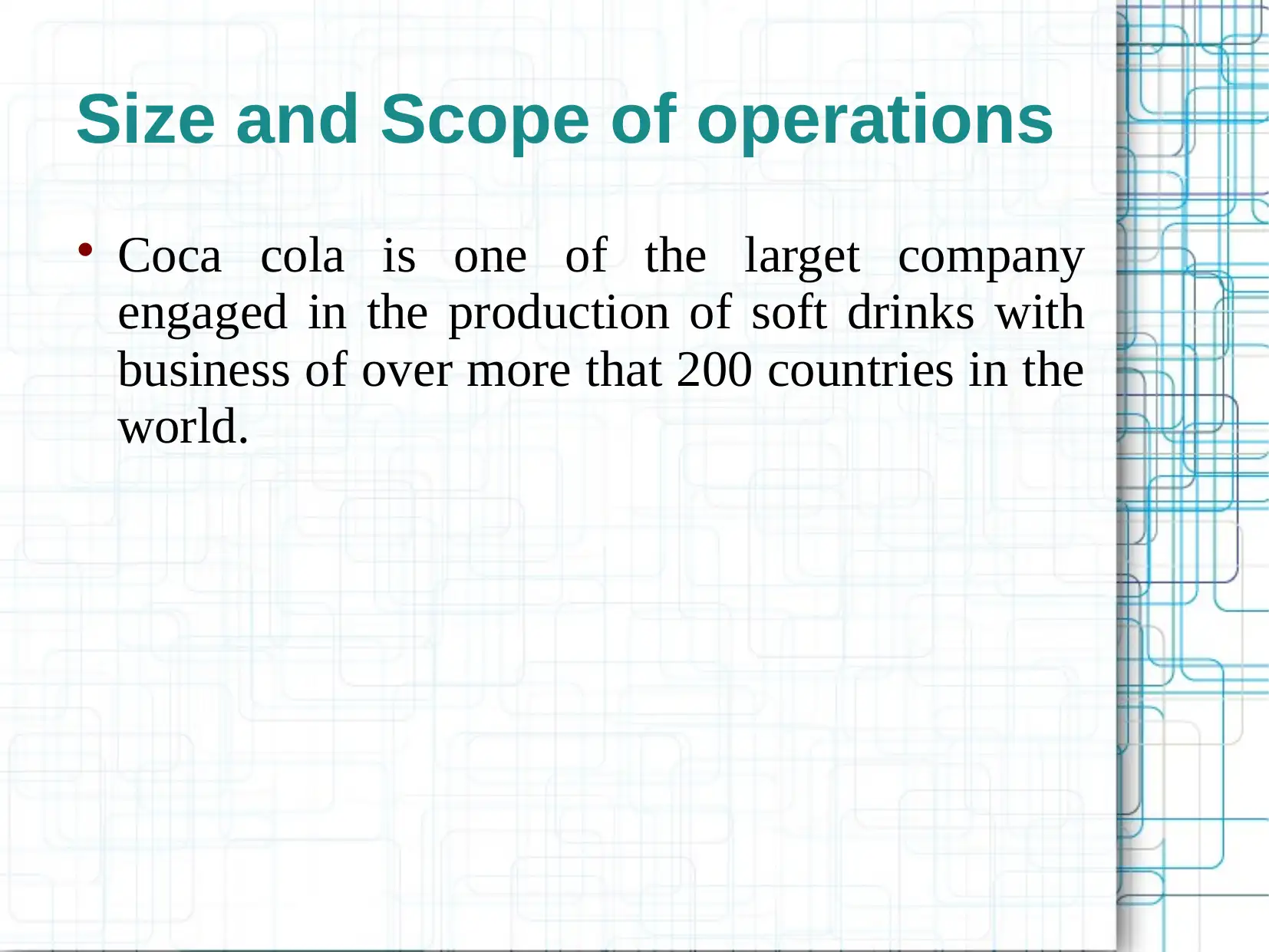
Size and Scope of operations
Coca cola is one of the larget company
engaged in the production of soft drinks with
business of over more that 200 countries in the
world.
Coca cola is one of the larget company
engaged in the production of soft drinks with
business of over more that 200 countries in the
world.
⊘ This is a preview!⊘
Do you want full access?
Subscribe today to unlock all pages.

Trusted by 1+ million students worldwide
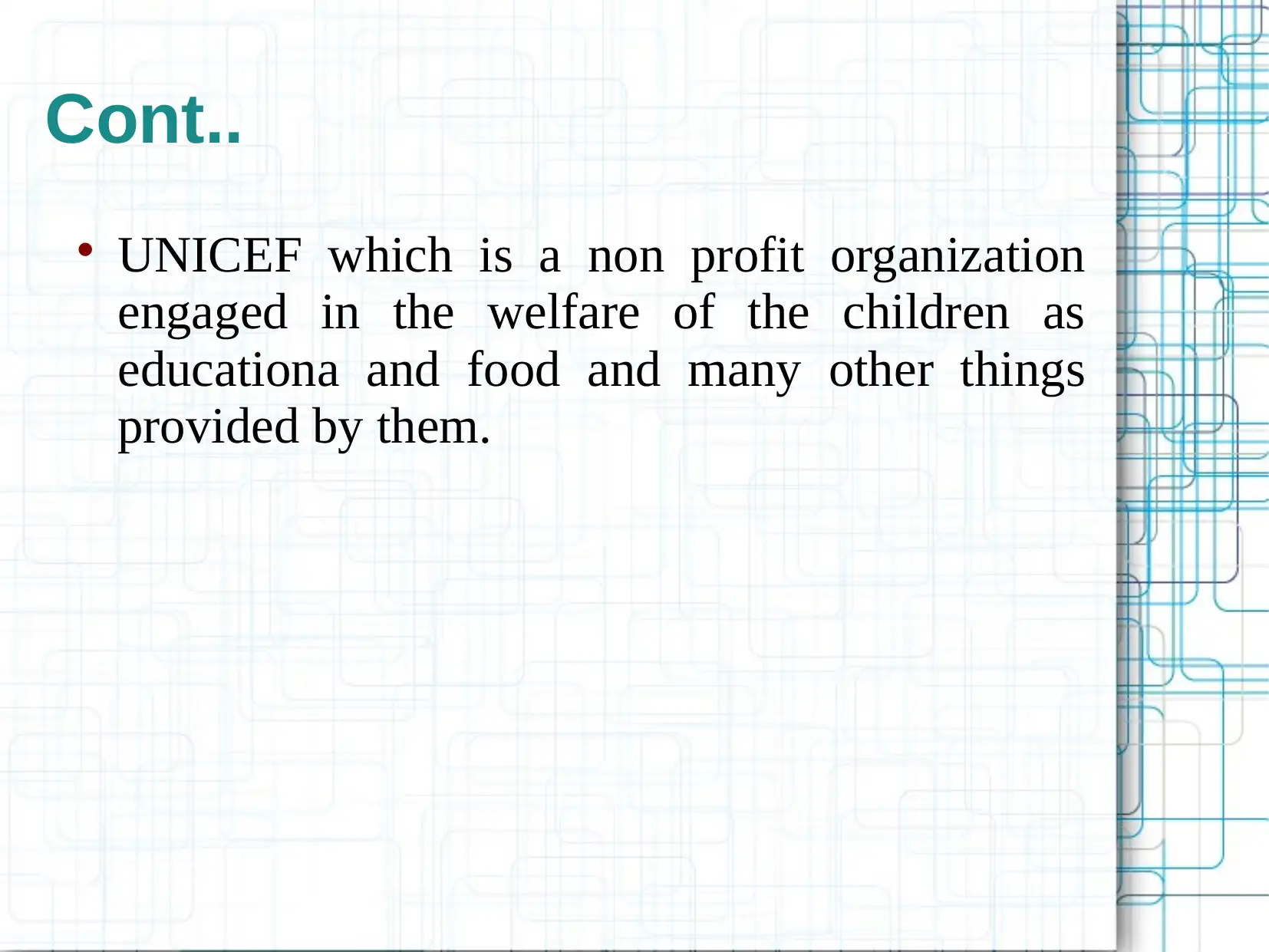
Cont..
UNICEF which is a non profit organization
engaged in the welfare of the children as
educationa and food and many other things
provided by them.
UNICEF which is a non profit organization
engaged in the welfare of the children as
educationa and food and many other things
provided by them.
Paraphrase This Document
Need a fresh take? Get an instant paraphrase of this document with our AI Paraphraser
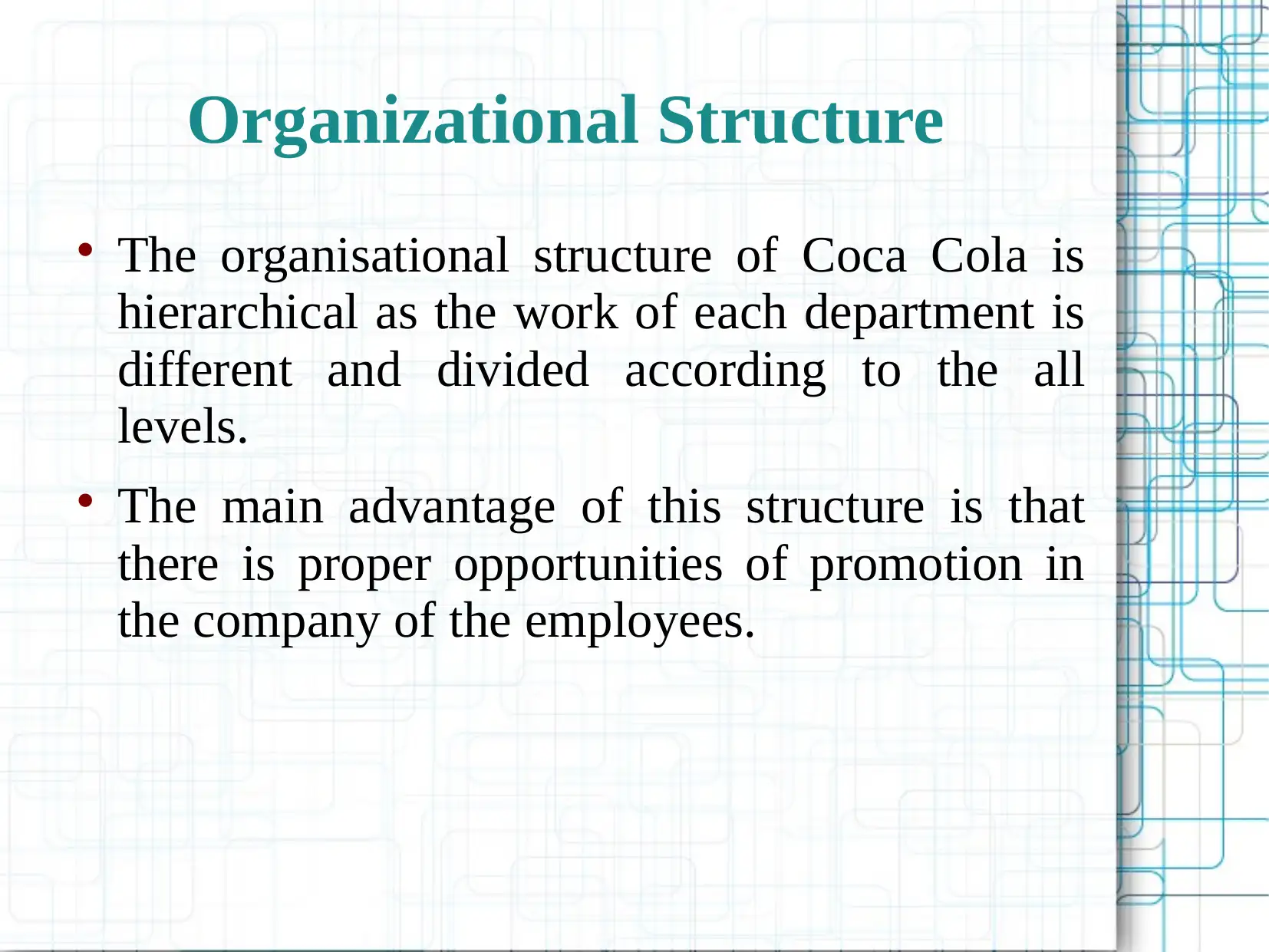
Organizational Structure
The organisational structure of Coca Cola is
hierarchical as the work of each department is
different and divided according to the all
levels.
The main advantage of this structure is that
there is proper opportunities of promotion in
the company of the employees.
The organisational structure of Coca Cola is
hierarchical as the work of each department is
different and divided according to the all
levels.
The main advantage of this structure is that
there is proper opportunities of promotion in
the company of the employees.
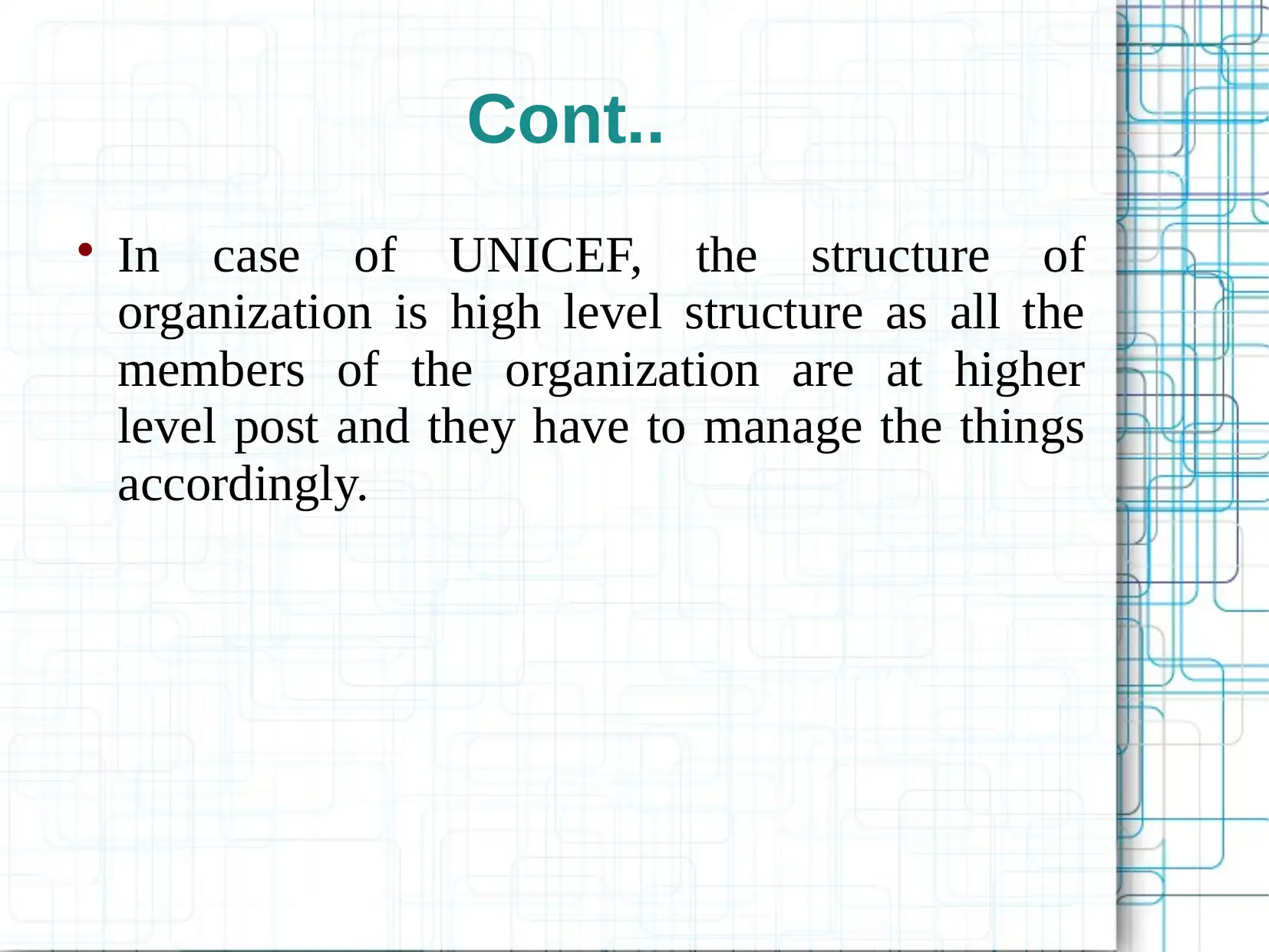
Cont..
In case of UNICEF, the structure of
organization is high level structure as all the
members of the organization are at higher
level post and they have to manage the things
accordingly.
In case of UNICEF, the structure of
organization is high level structure as all the
members of the organization are at higher
level post and they have to manage the things
accordingly.
⊘ This is a preview!⊘
Do you want full access?
Subscribe today to unlock all pages.

Trusted by 1+ million students worldwide
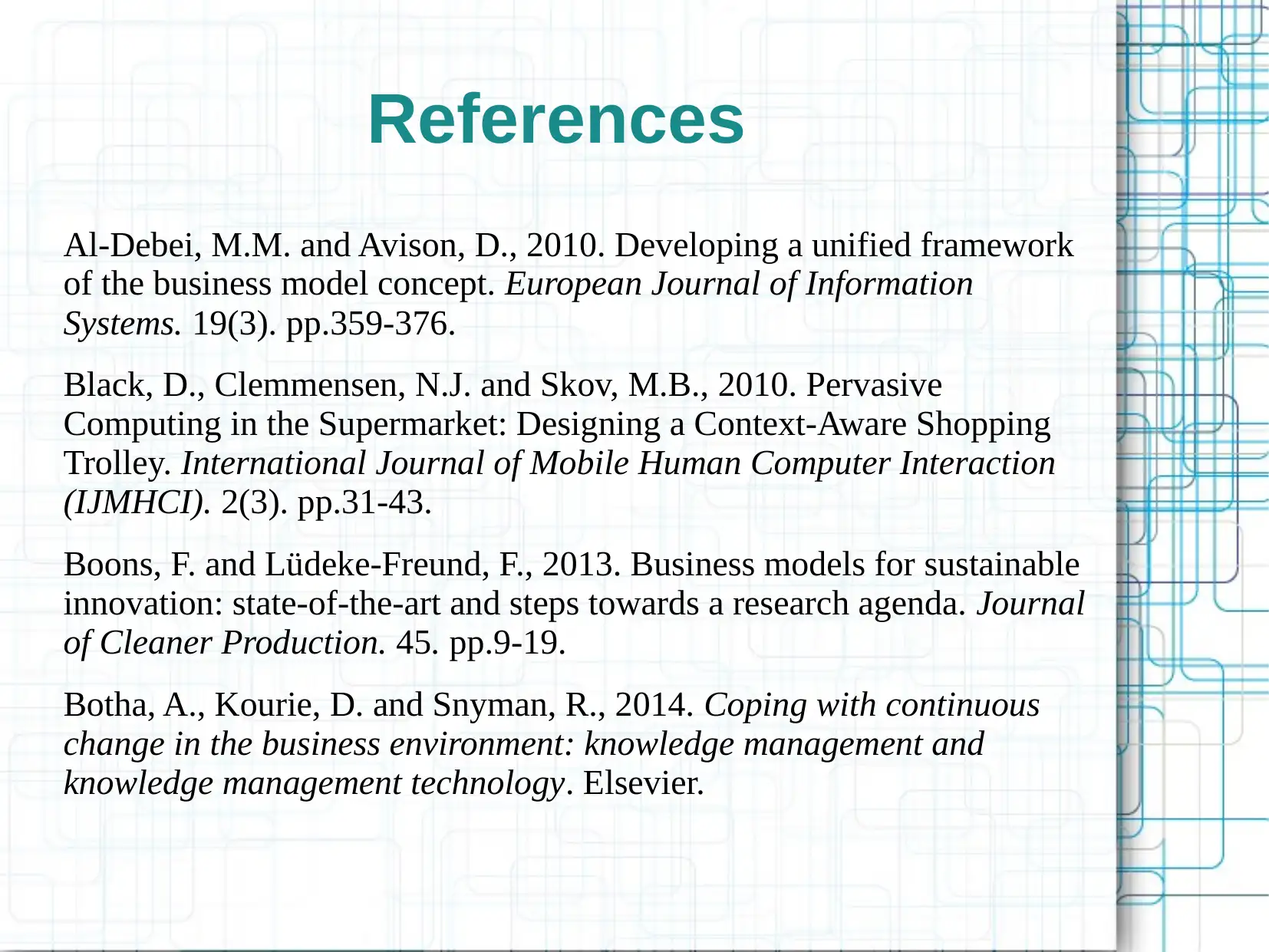
References
Al-Debei, M.M. and Avison, D., 2010. Developing a unified framework
of the business model concept. European Journal of Information
Systems. 19(3). pp.359-376.
Black, D., Clemmensen, N.J. and Skov, M.B., 2010. Pervasive
Computing in the Supermarket: Designing a Context-Aware Shopping
Trolley. International Journal of Mobile Human Computer Interaction
(IJMHCI). 2(3). pp.31-43.
Boons, F. and Lüdeke-Freund, F., 2013. Business models for sustainable
innovation: state-of-the-art and steps towards a research agenda. Journal
of Cleaner Production. 45. pp.9-19.
Botha, A., Kourie, D. and Snyman, R., 2014. Coping with continuous
change in the business environment: knowledge management and
knowledge management technology. Elsevier.
Al-Debei, M.M. and Avison, D., 2010. Developing a unified framework
of the business model concept. European Journal of Information
Systems. 19(3). pp.359-376.
Black, D., Clemmensen, N.J. and Skov, M.B., 2010. Pervasive
Computing in the Supermarket: Designing a Context-Aware Shopping
Trolley. International Journal of Mobile Human Computer Interaction
(IJMHCI). 2(3). pp.31-43.
Boons, F. and Lüdeke-Freund, F., 2013. Business models for sustainable
innovation: state-of-the-art and steps towards a research agenda. Journal
of Cleaner Production. 45. pp.9-19.
Botha, A., Kourie, D. and Snyman, R., 2014. Coping with continuous
change in the business environment: knowledge management and
knowledge management technology. Elsevier.
Paraphrase This Document
Need a fresh take? Get an instant paraphrase of this document with our AI Paraphraser
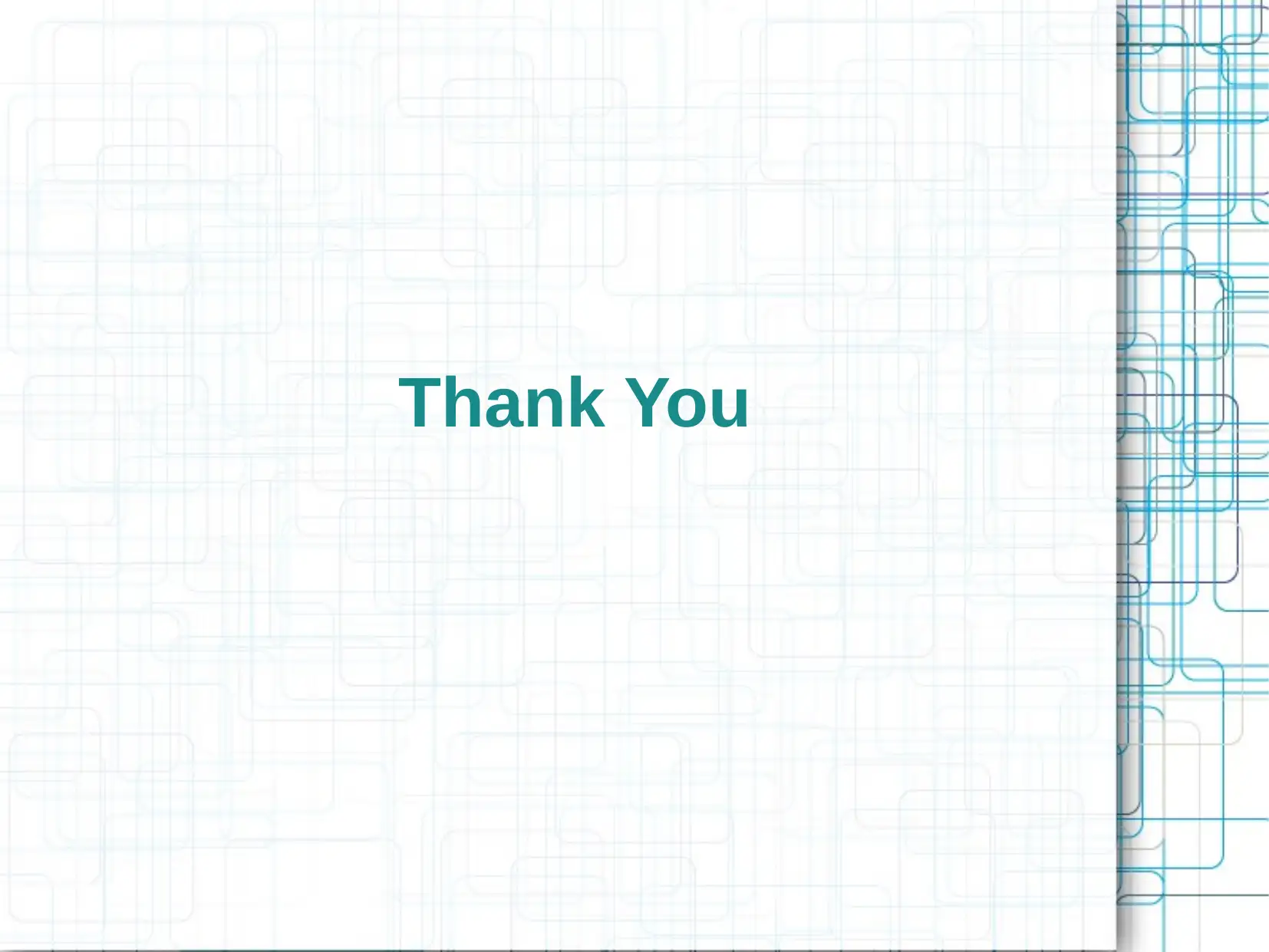
Thank You
1 out of 11
Related Documents
Your All-in-One AI-Powered Toolkit for Academic Success.
+13062052269
info@desklib.com
Available 24*7 on WhatsApp / Email
![[object Object]](/_next/static/media/star-bottom.7253800d.svg)
Unlock your academic potential
Copyright © 2020–2025 A2Z Services. All Rights Reserved. Developed and managed by ZUCOL.





